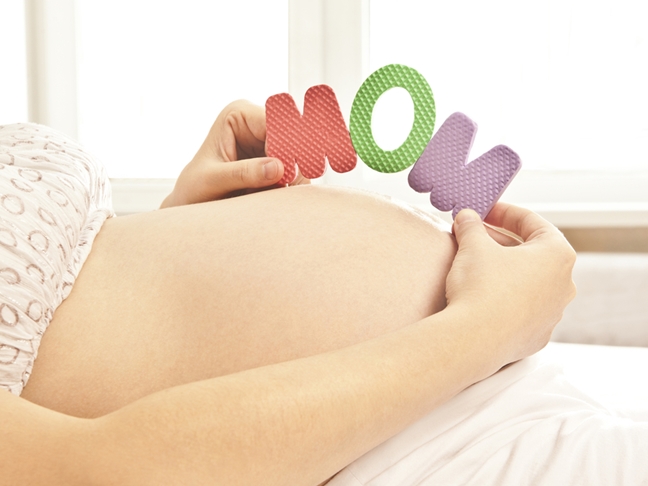Baby Panic
Baby panic—a deep anxiety about the ability to have children—sets in for many women in their early to mid 30s, and in a culture in which women are waiting to get married and opting for career before family, this can be deeply troubling, but how much of what we think we know is actually true?
The Scary Studies
The popular press typically advises women to have their last child by 35 and states that that one in three women between the ages of 35 – 39 won’t get pregnant within the first year of trying. But, how were those statistics generated? Get this: they’re sourced from data collected from French birth records dating between 1670 to 1830. That’s right. Our conventional wisdom comes from centuries old information. As Twenge says in her article, “Millions of women are being told when to get pregnant based on statistics from a time before electricity, antibiotics, or fertility treatment.” Isn’t it time to rethink things?
The American Society for Reproductive Medicine (ASRM) notes that women in their late 30s have a 30% chance of remaining childless, and that a woman’s likelihood of getting pregnant is 20% at age 30, and drops steadily every year until it dwindles down to 5% at the age of 40. These “authoritative” numbers are calculated based on historical populations, which means this data was collected before advanced medical care, antibiotics, and before a widely-distributed reliable food supply.
The Optimistic Studies
Now that we’ve debunked all the outdated information, where are the current and more accurate studies? Unfortunately (and surprisingly), there is very little dependable information about 20th and 21st century women’s fertility, but the scant data paints a promising picture.
David Dunson of Duke University examined the chances of pregnancy in 770 European women in a 2004 study published in Obstetrics & Gynecology. His pertinent findings were:
- 82% of women between the ages of 35 – 39 who have sex at least two times per week conceive within one year
- 86% of women between the ages of 27 – 34 who have sex at least two times per week conceive within one year
That’s only a 4% difference for women who are in their 20s to those who are in their 30s.
Another study, published in Fertility and Sterility last March examined 2,820 Danish women who were trying to conceive. Here are the findings:
- 78% of women between the ages of 35 – 40 who have sex during their fertile times get pregnant within a year
- 84% of women between the ages of 20 – 34 who have sex during their fertile times get pregnant within a year
That’s only a difference of 6%!
Although these studies have fewer test subjects than is necessary to make accurate and authoritative statements for wide swaths of the population, the data collected suggests there isn’t a significant drop in fertility until the age of 40.
What about Miscarriage?
It’s undisputed that miscarriage rates rise with age, but the important questions is: how much do these rates increase as women get older? Most stats you read (or may have heard) are derived from studies in which test subjects are undergoing IVF treatments. IVF patients have a higher incidence of miscarriage than women who conceive naturally.
So, what about the general population? The National Vital Statistics Reports states:
- 15% of women between the ages of 20 – 34 report having had a miscarriage
- 27% of women between the ages of 35 – 39 report having had a miscarriage
- 26% of women between the ages of 40 – 44 report having had a miscarriage
These increases are significant, but not debilitating, and it’s important to remember that even for older women, the likelihood of carrying a pregnancy to term is almost three times that of miscarrying.
What about Birth Defects?
The risk of chromosomal abnormalities (like Down syndrome) does rise with a woman’s age, but the probability of having a child with a chromosomal abnormality remains extremely low throughout the fertile lifespan:
- 99% of fetuses are chromosomally normal among 35 year old pregnant women
- 97% of fetuses are chromosomally normal among 40 year old pregnant women
- 87% of fetuses are chromosomally normal among 45 year old pregnant women (although this is an age when the majority of women can no longer get pregnant)
What Does This Mean for You?
First, relax! If you want to become a parent, your chances look good.
As Twenge states in her article, “The data is still pretty sparse with current studies having too few test subjects to make any real claims. The data, imperfect as they are, suggest two conclusions. No. 1: fertility declines with age. No. 2, and much more relevant: the vast majority of women in their late 30s will be able to get pregnant on their own.” Twenge also notes that women should plan to have their last baby by the age of 40.
It’s also important to remember that there are multiple factors that affect fertility, and most fertility problems do not stem from a woman’s age. Almost half of infertility culprits trace back to the man, and many are due to blocked tubes, endocrine disorders, or endometriosis.
